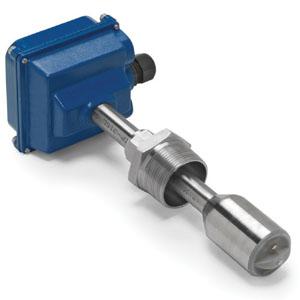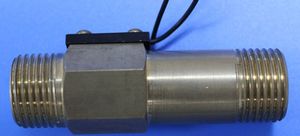Flow Sensors
Flow Sensor is a device for sensing the rate of fluid flow. Typically a flow sensor is the sensing element used in a flow meter, or flow logger, to record the flow of fluids. As is true for all sensors, absolute accuracy of a measurement requires a functionality for calibration. There are various kinds of flow sensors and flow meters, including some that have a vane that is pushed by the fluid, and can drive a rotary potentiometer, or similar devices. Other flow sensors are based on sensors which measure the transfer of heat caused by the moving medium. This principle is common for microsensors to measure flow.Flow meters are related to devices called velocimeters that measure velocity of fluids flowing through them. Laser-based interferometry is often used for air flow measurement, but for liquids, it is often easier to measure the flow. Another approach is doppler-based methods for flow measurement. Hall effect sensors may also be used, on a flapper valve, or vane, to sense the position of the vane, as displaced by fluid flow.
Sensors for measuring volume flow rate
Differential Pressure Sensors are suitable for measuring the volume flow rate of gases and liquids according to the differential pressure procedure. The Sensors record the minimum drop in pressure on a flow element (e.g. screen, nozzle, laminar flow element) which equates to a measurement for the volume flow rate. Robust, highly accurate and extremely low differential pressure sensors reliably monitor how much of the medium flows through the line at any given time.
Areas of use for flow sensors
Flow sensors are used in ventilator machines and inhalers, oxygen concentrators, insufflators and anaesthesia machines, to name but a few areas of application.Air conditioning technology, fuel cells, gas analysers, low vacuum control, process control, filter monitoring, extraction hoods or gas measuring stations are further applications of these sensors.

